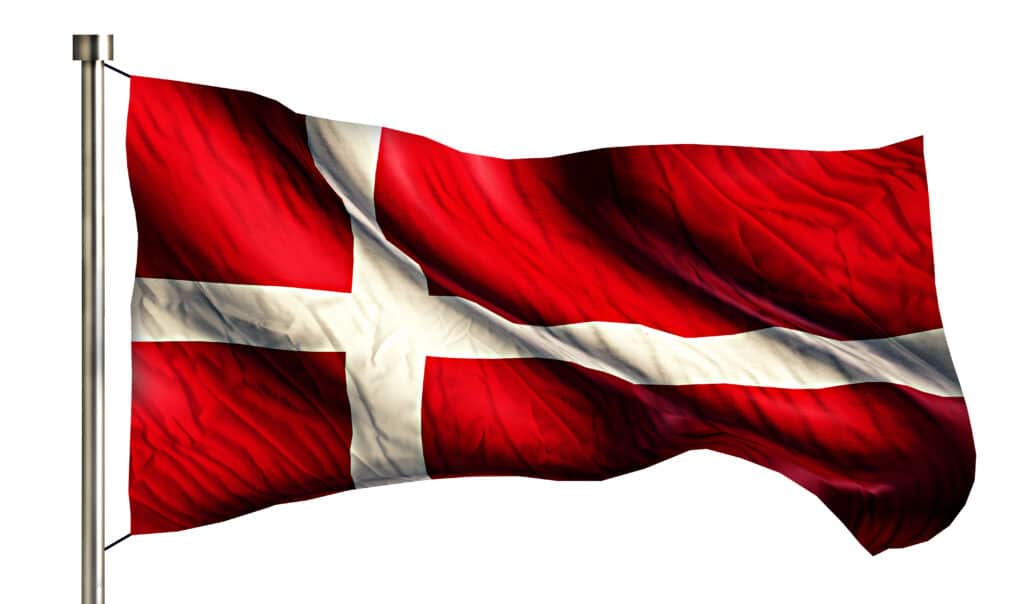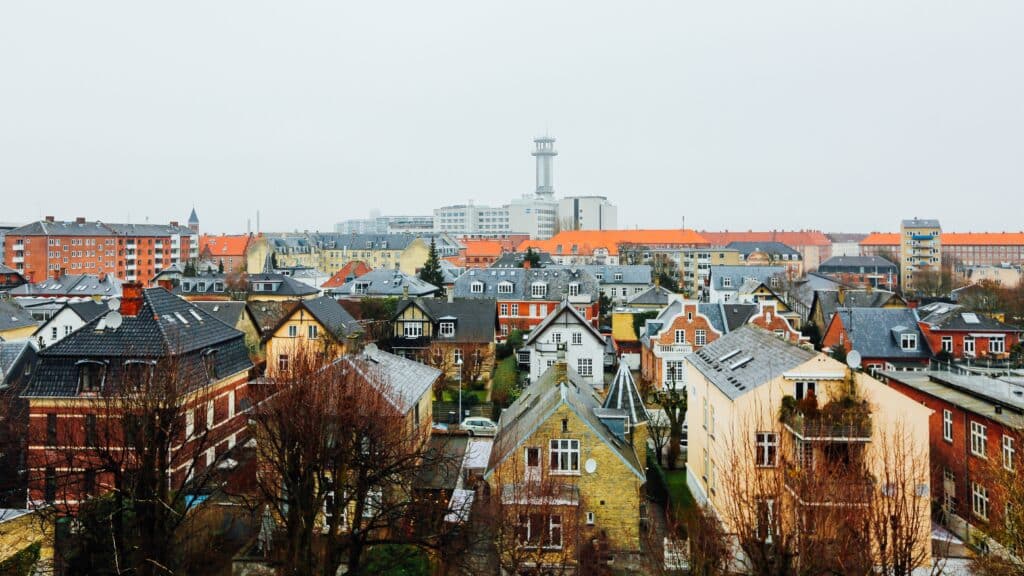[ad_1]
Retiring in Denmark in 2022
If you are looking to invest as an expat or high-net-worth individual, which is what I specialize in, you can email me ([email protected]) or use WhatsApp (+44-7393-450-837).
Introduction
You are headed to one of the world’s happiest nations if you consider retiring in Denmark. The Danes are thought to be among the world’s happiest people. In fact, the country ranked 2nd in the world, according to the 2021 Happiness Score from the World Happiness Report. It also ranked 5th among the safest countries in the world based on the Global Peace Index report from the Institute for Economics and Peace.
The country is home of Hans Christian Andersen, renowned author of titles like The Little Mermaid and The Ugly Duckling. One of the first amusement parks in the world, Tivoli Gardens, is located in the nation too.
There are many things you may enjoy if you’re retiring in Denmark, thanks to its rich culture and wide array of outdoor activities. The capital city of Copenhagen, which is in Western Europe and has a few islands nearby, provides visitors with an exciting biking experience.
In this article, I will discuss how retiring in Denmark works, including the potential living costs.
Retiring in Denmark: Visas and Residency
Denmark does not offer a particular visa for retirement. You require more than just a tourist visa if you plan on retiring in Denmark. You must obtain a long-term visa if you intend to stay in the country for a period that’s longer than three months. Your options include obtaining a student visa, a worker visa, or proving that you are a Danish citizen’s partner.
The worker or partner visa is the more popular choice for American retirees, with the latter being relatively easier to obtain. A Danish national may sponsor your visa if you are married to them or have been in a committed relationship with them for a significant period of time.
Denmark also lacks a residence by investment program, in contrast to most other nations. Particularly when considering applications from business migrants, Danish immigration authorities are quite selective about who they let to immigrate.
The Startup Visa is one of the business migration options available in Denmark at the moment. It takes six weeks to get approval for your business plan under the application process for this type of visa, then add another month for the residence permit.
A 2-year residency permit is offered by the program to applicants. Candidates may qualify for permanent residency after six years (or within 4 years, subject to certain conditions).

Retiring in Denmark: Citizenship
You can become a Danish citizen through any of the following:
- By descent. If one of your parents is a citizen of Denmark, you are granted citizenship automatically when you are born. Children below 12 years old who are adopted by Danes are also given citizenship.
- By naturalization. Before you can submit a citizenship application, you must have resided in Denmark for a minimum of nine years.
- By declaration (Nordic citizens). After residing in Denmark for seven years, nationals of Finland, Iceland, Norway, and Sweden may declare their intention to become citizens of the country.
Retiring in Denmark: Healthcare
According to German market and consumer data provider Statista, Denmark’s health index score ranked 15th in the health and health systems ranking of countries across the world in 2021. For comparison, the US ranked 49th, which is way lower than the European country.
Since the government distributes tax money to all the regions and municipalities to fund the provision of healthcare services across the nation, it is able to offer all taxpaying citizens affordable and proper healthcare. Unfortunately for non-taxpayers, they must use their own money or private insurance to pay into the system because they are not automatically enrolled.
If you have never worked in the country before, it may be difficult for you to get medical care as a retiree. As a visitor, you have two options for getting quality healthcare: either you purchase insurance to cover your medical expenses or you register with Citizen Services to get a civil registration (CPR) number.
The Danish Health Security Act is a social health insurance program in Denmark. As long as they have a CPR number and are registered with Citizens’ Services, it applies to foreign nationals who stay in Denmark for a period of time longer than three months.
The Danish healthcare system will continue to see an individual even if they do not yet have coverage or do not have access to a CPR number because of their visa status as long as they have access to health insurance in their home country or can afford to pay for their medical expenses.
Retiring in Denmark: Taxes
You should be aware that you will be subject to local taxes after receiving your visa and relocating to the nation. In other words, if you had employment in Denmark prior to retirement, your pension savings would be taxed. However, if you are a foreigner, you must pay taxes when you transfer your pension to the nation.
Tax rates depend on the income you earn in the country. To avoid double taxation, it is best to work with an accountant or a financial expert who knows more about tax credits such as the foreign earned income exclusion. Tax rates are usually higher than taxes in the US. Make sure to learn more about the tax policy in Denmark before relocating there.
The amount of tax you pay depends on how much is your income in Denmark. Before moving to Denmark, make sure to educate yourself on the country’s tax laws.
Your income from Danish sources will be taxed if you are able to obtain a work or partner visa in that country. Depending on your income, you’ll pay taxes at a rate between 8% and 56%.
Additionally, Denmark imposes a sales tax called value added tax (VAT) worth up to 25% on items. Capital gains taxes on investments in the country can also be levied at a rate ranging from 27% to 42% of gains, including those from the purchase and sale of properties with greater market values.
The annual filing of expatriate tax returns is further required of US citizens, so you can check our article titled 24 Vital Things on American Expat Tax You Should Know for more details and to avoid double-taxation.

Retiring in Denmark: Safety
Due to Denmark’s reputation as one of the safest nations in the world, retiring there shouldn’t present any security concerns.
In fact, the nation came in fifth place (along with the Netherlands, Uzbekistan, Estonia and Jordan) in terms of countries/areas with the highest law and order index scores, according to the 2021 Law and Order report of analytics and advisory firm Gallup, which was based on a 2020 global survey for perceptions of law and order.
Meanwhile, the US Department of State reported that Copenhagen is a medium-threat destination in terms of crime.
In addition to having substantially less crime than in the US, many people take advantage of the superior public healthcare system in Denmark. Therefore, both locals and visitors will always have access to top-notch medical care whether they are hurt while participating in physical activity or for any other reason.
Copenhagen is a pleasant, safe city full of outdoor activities like biking, hiking, and visiting the beach that foreigners who live there can find to be enjoyable.
Retiring in Denmark: Cost of Living
You would typically spend less money when retiring in Denmark than you would in the US. For comparison, global cost of living data aggregator Numbeo estimated that you must have about $5,254 in Danish capital Copenhagen (as of the time of writing) so as to maintain the same standard of life that you can have with $6,900 in US capital Washington, DC. These figures assume that you are renting in both cities.
Asset management firm Mercer also listed Copenhagen as the 11th most expensive city in the world for expats in its 2022 Cost of Living City Ranking. That’s below New York which took the 7th spot, as well as Hong Kong at the top spot and fellow European city Zurich at number two.
In terms of real estate, the cost per square meter for buying an apartment within Denmark’s city center is at 34,735 krone, while that outside of the area is at 24,850 krone.
Rent for one-bedroom apartments inside and outside Denmark’s city center cost 7,408 krone ($998) and 5,494 krone on average per month, respectively. For comparison, monthly average rent prices for one-bedroom apartments inside the US’ city center costs almost twice as much at about $1,676 while that outside of the area costs $1,256.
A meal at an inexpensive restaurant in Denmark is estimated to cost 130 krone, while a mid-range restaurant can charge 600 krone for a three-course meal for two.
The overall cost of living in the country for a family of four can reach an estimated average of about 25,364.5 krone per month, while a single person can live off roughly 7,056 krone a month, both excluding rent.

Retiring in Denmark: Final Thoughts
If you enjoy the outdoors, stunning scenery, and magnificent architecture, Denmark can be an amazing destination to call home. The area is one of the happiest in the world, and anyone who is eager to pursue their aspirations will find a wealth of options there.
It’s important to keep in mind, though, that life in Denmark differs significantly from life elsewhere in the world in a number of important ways. The majority of Scandinavia, including Denmark, is notorious for having high taxes, but in exchange, you get excellent healthcare, education, and employment advantages.
You shouldn’t have too much trouble selecting a place to live in Denmark that meets your unique needs as there are so many wonderful cities, towns, and villages to pick from. Before taking the decisive step, keep in mind your personal wants and aspirations.
Pained by financial indecision? Want to invest with Adam?

Adam is an internationally recognised author on financial matters, with over 449.5 million answers views on Quora.com and a widely sold book on Amazon
[ad_2]
Source link
Related posts
Today's pick
Recent Posts
- Cultural Evolution of Hot Yoga: From Bikram’s Legacy to Modern Studio Innovations March 29, 2025
- The Future of Automotive: Innovations Shaping the Industry January 23, 2025
- The Benefits Of Online Therapy: Convenient And Effective Counseling At Your Fingertips June 1, 2024
- Seminary Schools In Texas: Nurturing Faith And Knowledge In The Lone Star State June 1, 2024
- A Definitive Guide To Understanding Business Personal Property Tax June 1, 2024
